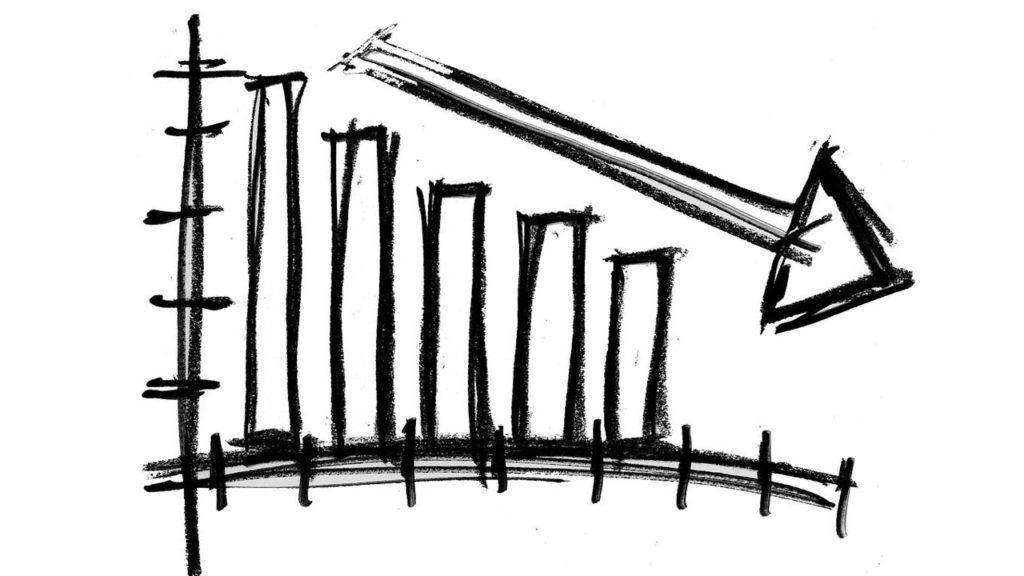The Federal Reserve cut rates to zero and expanded quantitative easing on Sunday. How did the markets reward this latest monetary stimulus?
They crashed.
In his podcast, Peter said he thinks we’ve passed the point of no return.
The Dow Jones plunged another 2,997 points, a 12.9% selloff. It was the second-biggest percentage drop in history. The S&P 500 dropped by nearly 12%. The NASDAQ shed 12.3%.
On Monday afternoon, the Fed announced another $500 billion program on top of the $700 billion in Treasury and mortgage-backed security purchases it rolled out Sunday evening. In his podcast, Peter Schiff said they’re just throwing out numbers at this point.
Five hundred billion here, five hundred billion there. You know, pretty soon you’re talking about real money.”
Federal Reserve chair Jerome Powell still refuses to call it quantitative easing. Peter said he never liked that term anyway. Let’s call it what it is – monetizing the debt.
Peter has been predicting this move to zero for months. In fact, he specifically talked about it during an interview with Liz Claman on Fox Business back in June. And at the time, he said it wasn’t going to work.
People are taking the money to the supermarket, not the stock market. The only reason that people think QE worked the last time they did it was one, they were able to reflate the asset bubbles. But that wasn’t success, that was failure…
The other factor, and I can’t stress this enough… is that what convinced everybody that it worked and that we dodged the hyperinflation bullet was that everybody believed it was temporary. That the Fed was going to be able to normalize interest rates and shrink its balance sheet. Well, nobody is going to believe that this time. Once this balance sheet blows through 10 trillion, once interest rates are back to zero and they’ve been there for who knows how long the Fed is going to keep them there. And who knows where the national debt is going to go, I mean, we know it’s going to go into the stratosphere, but nobody is going to believe that normalization is even close to possible, that any balance sheet reduction will ever happen, so nothing is going to stop the bottom from falling out of the dollar. And now, hyperinflation is probably not just the worst-case scenario, it’s probably the most likely scenario.”
As Peter said, the laws of economics apply here just like they did in the Weimar Republic Germany, or Zimbabwe, or in Venezuela.
If we pursue the same monetary and fiscal policy they did, we’re going to receive the same monetary outcome they did.”
The Fed also reduced the reserve requirements for banks to zero. In other words, no matter how much they lend out, they don’t have to have any money to back up those loans. Practically speaking, if any of these big banks start to fail, it will cost even more taxpayer money to bail them out.
The dollar index fell slightly, but other central banks are also engaging in extraordinary monetary policy. Peter said at some point, they’ll have to give it up. They will have to fight the inflation monster that will be unleashed. Eventually, the dollar is going to go through the floor.
Peter also made some interesting comparisons between this crisis and World War II. Significantly, the government keeps telling us everybody needs to be bailed out. Nobody should suffer any pain. Who is going to pay for all of this? We are, of course.
It’s the people who support the government. The government can never support the people, because the government gets its money from the people.”
Peter said this is the crash he’s been predicting and writing about.
This is the beginning of the end. This is how it starts. And believe me, when you see how this finishes, this is going to be unlike anything we have experienced. I think we have passed that point of no return. It’s like we’ve already jumped off the top of the building, off the top of the Empire State Building. There’s no way to change our minds now. We’re going to hit that pavement. I can’t see any way we can avoid that. All we can do is brace for impact ourselves.”
Peter also talks about why gold is falling. Keep in mind, gold is only down about 2% on the year. Stocks are down over 30%. Gold is also strong compared to many other commodities.
Gold is shining. Just a lot of people can’t see that because they don’t really know how to look.”
Peter said he thinks the people selling right now and pushing the price down just need the money. Everything is collapsing. People need to raise cash. The mainstream analysts have said the same thing. This is a “sell everything” event.
When the rally [in gold] really starts, it’s going to go ballistic. You are going to see a rush of money into gold, and we are going to see $100, $200, a $500 up day. It’s coming. Because what are you going to do? There is only so much food you can stock up on. There’s only so much toilet paper you can store in your house. So, if you’re not buying food, you’re not buying toilet paper, what are you going to buy? You’ve got to buy gold. Becuase if you want to buy food and toilet paper in the future, you’d better have gold. Because the problem is people are going to get wiped out when the dollar collapses.”
